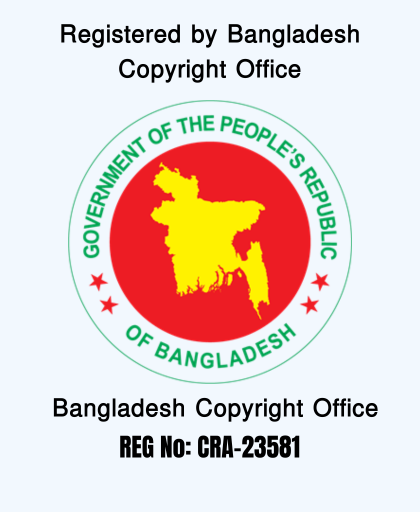
Your Trusted Advisors in Business Success.
"JK Associates"is top-ranked Corporate Consultancy and Law firm in Bangladesh with the international presence provides specialized services in Intellectual Property Rights, Corporate Affairs, Foreign Trade and Investment, Taxation, and Litigation.
250+
Global Clients
10+
Specialists
7+
Year of experience
Business Setup Packages
STARTUP BASIC

*EMI Facilities
- Business Consultation
- Document Preparation
- Limited Company Registration (10 Lac Authorized Capital)
- Company TIN Registration
- Trade License (Up to 2 Lac Paid up)
- Bank Account Opening Assistance
- Company Stamp
*Terms & condition apply
Get QuotationSTARTUP EXCLUSIVE

*EMI Facilities
- Business Consultation
- Document Preparation
- Limited Company Registration (50 Lac Authorized Capital)
- Company TIN Registration
- Trade License (Up to 10 Lac Paid up)
- Bank Account Opening Assistance
- Company Stamp
- BIN Registration
- Trademark First Application
- Copyright Registration
- One Consultation with certified TAX Expert
*Terms & condition apply
Get QuotationSTARTUP PREMIUM

*EMI Facilities
- Business Consultation
- Document Preparation
- Limited Company Registration (1 core Authorized Capital)
- Company TIN Registration
- Trade License (Up to 10 Lac Paid up)
- Bank Account Opening Assistance
- Company Stamp
- BIN Registration
- Trademark First Application
- Copyright Registration
- One Consultation with certified TAX Expert
- Domain & Hosting (1 year)
- Company Website
- Android Apps
- Company Logo
- Social Media Setup (Digital Marketing)
*Terms & condition apply
Get QuotationSTARTUP BASIC

*USA
- Business Consultation
- Document Preparation
- Limited Company Registration (10 Lac Authorized Capital)
- Company TIN Registration
- Trade License (Up to 2 Lac Paid up)
- Bank Account Opening Assistance
- Company Stamp
*Terms & condition apply
Get QuotationSTARTUP EXCLUSIVE

*USA
- Business Consultation
- Document Preparation
- Limited Company Registration (50 Lac Authorized Capital)
- Company TIN Registration
- Trade License (Up to 10 Lac Paid up)
- Bank Account Opening Assistance
- Company Stamp
- BIN Registration
- Trademark First Application
- Copyright Registration
- One Consultation with certified TAX Expert
*Terms & condition apply
Get QuotationSTARTUP PREMIUM

*USA
- Business Consultation
- Document Preparation
- Limited Company Registration (1 core Authorized Capital)
- Company TIN Registration
- Trade License (Up to 10 Lac Paid up)
- Bank Account Opening Assistance
- Company Stamp
- BIN Registration
- Trademark First Application
- Copyright Registration
- One Consultation with certified TAX Expert
- Domain & Hosting (1 year)
- Company Website
- Android Apps
- Company Logo
- Social Media Setup (Digital Marketing)
*Terms & condition apply
Get QuotationSTARTUP BASIC

*UK
- Business Consultation
- Document Preparation
- Limited Company Registration (10 Lac Authorized Capital)
- Company TIN Registration
- Trade License (Up to 2 Lac Paid up)
- Bank Account Opening Assistance
- Company Stamp
*Terms & condition apply
Get QuotationSTARTUP EXCLUSIVE

*UK
- Business Consultation
- Document Preparation
- Limited Company Registration (50 Lac Authorized Capital)
- Company TIN Registration
- Trade License (Up to 10 Lac Paid up)
- Bank Account Opening Assistance
- Company Stamp
- BIN Registration
- Trademark First Application
- Copyright Registration
- One Consultation with certified TAX Expert
*Terms & condition apply
Get QuotationSTARTUP PREMIUM

*UK
- Business Consultation
- Document Preparation
- Limited Company Registration (1 core Authorized Capital)
- Company TIN Registration
- Trade License (Up to 10 Lac Paid up)
- Bank Account Opening Assistance
- Company Stamp
- BIN Registration
- Trademark First Application
- Copyright Registration
- One Consultation with certified TAX Expert
- Domain & Hosting (1 year)
- Company Website
- Android Apps
- Company Logo
- Social Media Setup (Digital Marketing)
*Terms & condition apply
Get QuotationSTARTUP BASIC

*DUBAI
- Business Consultation
- Document Preparation
- Limited Company Registration (10 Lac Authorized Capital)
- Company TIN Registration
- Trade License (Up to 2 Lac Paid up)
- Bank Account Opening Assistance
- Company Stamp
*Terms & condition apply
Get QuotationSTARTUP EXCLUSIVE

*DUBAI
- Business Consultation
- Document Preparation
- Limited Company Registration (50 Lac Authorized Capital)
- Company TIN Registration
- Trade License (Up to 10 Lac Paid up)
- Bank Account Opening Assistance
- Company Stamp
- BIN Registration
- Trademark First Application
- Copyright Registration
- One Consultation with certified TAX Expert
*Terms & condition apply
Get QuotationSTARTUP PREMIUM

*DUBAI
- Business Consultation
- Document Preparation
- Limited Company Registration (1 core Authorized Capital)
- Company TIN Registration
- Trade License (Up to 10 Lac Paid up)
- Bank Account Opening Assistance
- Company Stamp
- BIN Registration
- Trademark First Application
- Copyright Registration
- One Consultation with certified TAX Expert
- Domain & Hosting (1 year)
- Company Website
- Android Apps
- Company Logo
- Social Media Setup (Digital Marketing)
*Terms & condition apply
Get QuotationSTARTUP BASIC

*SINGAPORE
- Business Consultation
- Document Preparation
- Limited Company Registration (10 Lac Authorized Capital)
- Company TIN Registration
- Trade License (Up to 2 Lac Paid up)
- Bank Account Opening Assistance
- Company Stamp
*Terms & condition apply
Get QuotationSTARTUP EXCLUSIVE

*SINGAPORE
- Business Consultation
- Document Preparation
- Limited Company Registration (50 Lac Authorized Capital)
- Company TIN Registration
- Trade License (Up to 10 Lac Paid up)
- Bank Account Opening Assistance
- Company Stamp
- BIN Registration
- Trademark First Application
- Copyright Registration
- One Consultation with certified TAX Expert
*Terms & condition apply
Get QuotationSTARTUP PREMIUM

*SINGAPORE
- Business Consultation
- Document Preparation
- Limited Company Registration (1 core Authorized Capital)
- Company TIN Registration
- Trade License (Up to 10 Lac Paid up)
- Bank Account Opening Assistance
- Company Stamp
- BIN Registration
- Trademark First Application
- Copyright Registration
- One Consultation with certified TAX Expert
- Domain & Hosting (1 year)
- Company Website
- Android Apps
- Company Logo
- Social Media Setup (Digital Marketing)
*Terms & condition apply
Get QuotationVAT Calculator
Where Global Entrepreneurs Thrive
We make launching your Bangladesh business easy, fast, and effective

How to open Company in Bangladesh
Step-1
Preparation
Request free company namesearch we check the eligibility of the name, and make suggestion if necessary.
Step-2
company Details
- Register or login and fill in the company names and director/shareholder(s).
- Fill in company address oe special request(if any).
Step-3
Payment for your favourite Bangladeshi comapny
- Register or login and fill in the company names and director/shareholder(s).
- Fill in company address oe special request(if any).
Step-4
Send the company kit to your address
- You will receive soft copies of necessary documents including: Certificate of Incorporation, Memorandum and Articles of Association, Form XII etc.Then your new company in a jurisdiction is ready to do business.
- You can brigng the documents in company kit to open corporate bank account or we can help you with our long experience of Banking support service.
Frequently Asked Questions
Trademark Registration Process. Step 1: Searching for Trademark Registration . Step2: Power of Power of Attorney Step 3: Filling an Application for Trademark Registration, Next Up to Final Registration.





